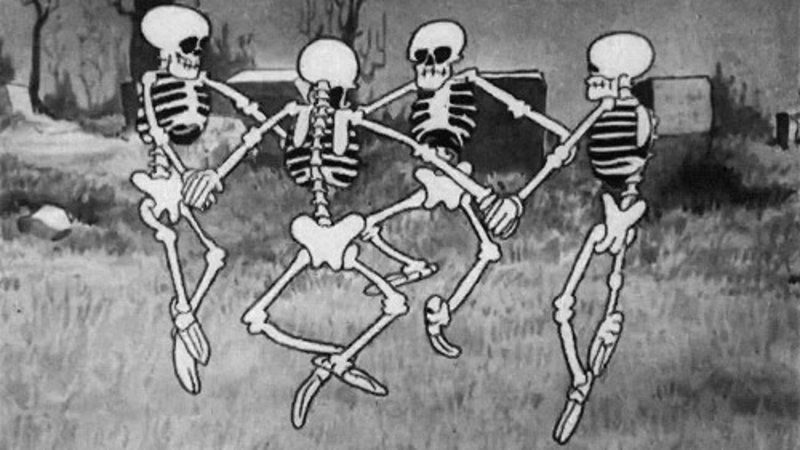 At Bourke Accounting, Bill’s granddaughter started in-person pre-school this week. While I’m leery about school openings, the kid didn’t have a problem with it. Her mother instructed her to keep her mask on all day and showed her the extras packed in her little bookbag. The kid accepted it with a “meh, I guess this is what we’re doing now” mentality. Judging from the picture (above), the child was more interested in her weird water assignment than the implications of masks (I thought she was manufacturing drugs, but Bill says pre-schools don’t engage in child labor).
At Bourke Accounting, Bill’s granddaughter started in-person pre-school this week. While I’m leery about school openings, the kid didn’t have a problem with it. Her mother instructed her to keep her mask on all day and showed her the extras packed in her little bookbag. The kid accepted it with a “meh, I guess this is what we’re doing now” mentality. Judging from the picture (above), the child was more interested in her weird water assignment than the implications of masks (I thought she was manufacturing drugs, but Bill says pre-schools don’t engage in child labor).
Recently, I’ve been hearing stories on the news and from friends about the heavy toll the virus is taking on children. The disruption of normal life has led to an increase in depression, anxiety and behavioral problems among the young. While we can blame coronavirus and lockdowns all day long, the true culprit is us. We, as adults, aren’t holding up our end of things.
Don’t believe me? Stop me when I’m wrong, then: last weekend, a couple beat the holy bejeezus out of a 17-year-old worker at the Sesame Place theme park. This poor kid, an attendant at Captain Cookie’s High C’s Adventure, had his jaw dislocated after telling the couple (for the second time) that they needed to wear masks. Obviously, these people are savages, but the really extra-for-special part was that they assaulted this teenager in front of a lot of kids (NBCNews.com). How can we expect the children to be all right when not even Captain Cookie’s High C’s Adventure is safe?
Kids are still other-worldly enough to tune in to their caregivers’ emotions. When my little cousin was littler, she smacked her head on the concrete. She looked at me to see how she should react. When I told her that she just knocked out how to tie her shoes, she laughed and demonstrated that, no, she had not (I made sure she wasn’t bleeding). While it’s incredibly difficult to remain calm when we don’t know what’s going on or how long it’s going to last, we have to. That’s it. We have to be calm so that we don’t drive these half-baked creatures even more insane.
Another issue that parents and caregivers have to consider is that kids are getting away with murder right now. I hear parents lament that their children are talking back, defiantly disobeying and aren’t keeping up with schoolwork. Instead of repercussions, these kids are given passes, as “they’re going through so much.” Yeah, welcome to life, here’s a shovel. By not holding children accountable for their actions, we’re effectively hamstringing them; the prospective education gap that everyone is worried about will have its origin at home. It’s important to encourage children to talk about what’s making them act like evil monkeys – sensitivity to a kid’s obvious distress is not coddling. However, anxiety is no excuse for kicking a sibling or burning down the neighbor’s house.
Disasters change us. Fear, uncertainty and all the other good things give us the chance to behave like drooling maniacs or like superheroes. Your kid might not remember the cake you bought for her/his 5th birthday party, but I promise, that kid will remember the day you beat down Cookie Monster. Let’s be better.
Bourke Accounting bookkeepers and tax preparers are always calm (Bill isn’t even freaking about his grandkid going to school). Bourke Accounting experts know that if they allow their emotions to run wild, they are absolutely useless to their customers. If you are going through a financial tragedy, your Bourke Accounting specialist is here to solve your problems and alleviate your fears with the peaceful guidance you’ve come to expect.
Come see us any time. Our number is 502-451-8773 and don’t forget to visit our website at www.bourkeaccounting.com. See you soon!
Written by Sue H.
On July 17, I wrote a Bourke Accounting blog about Kanye West and his interesting bid for the presidency. On July 19, West held a campaign rally in South Carolina, where he unveiled equally interesting concepts. While he has more records, companies and money than most of us, West is basically a civilian with no lawmaking experience or ability. So, when West suggested that “everybody that [sic] has a baby gets a million dollars” (ABCNews.go.com), I realized that I, too, have some great ideas for the country!
Last year, the average tax refund for someone with children was around $3,000 (CNBC.com). While I realize that kids are expensive, it occurred to me that childless Americans should be given a little monetary pat on the back for not having kids. Here is my plan:
1) $3,000 – Reduced Resource Use Refund (RRUR). This refund would recognize childless people’s mitigation of their bloodline’s carbon footprint. For example, every year, 20 billion disposable diapers end up in landfills, “creating about 3.5 million tons of waste” (PRNewswire.com). Besides the waste, about 200,000 trees are used to make all of these diapers (PRNewswire.com). Since a family of five logically creates more trash and consumes more water, space and food, child-free Americans should be rewarded for having cut down their consumption of resources.
2) $2,500 – Public Nuisance Compensation (PNC). This amount would be used as remuneration for childless persons walking into elevators after giggling 7-year-olds have pressed every button. This is also to be used as acknowledgement for tantrums thrown by irritable kids at the next table during romantic dinners. For back of airplane seat kicking, see Subsection 8, Paragraph 4, Jarring and Unexpected Motion Compensation. NOTE: PNC is contingent on the behavior of the childless individual. No monies will be disbursed should the individual in question retaliate/yell/throw items. Eye-rolling and muttering will be allowable within reason (however, the use of obscenities is prohibited).
3) School Tax increase. A 5% school tax increase will be implemented to be paid by all citizens (with or without kids). Since the little ankle biters are the future of our world, they should be supplied with as many advantages as possible. This is nonnegotiable.
4) $1,500 – Impulse Buy Encouragement (IBE). It is well-known that baby-less people spend more money on stupid and expensive things. In addition, the childless spend about 75% more than their child-full counterparts on an average night on the town (statistic may have been fabricated). This money is in appreciation of childless Americans singlehandedly saving the economy by commissioning multiple oil paintings of cats/dogs/guinea pigs.
So, there you have it. Now, I’m not saying that I’m going to run for president, but with ideas like the above, I’d be the one to watch. Our country is being built on innovative ideas and good, solid social change. With me in the White House, we would definitely be guaranteed some interesting times. Vote for Sue in ’32!
You can bet that Bourke Accounting will be the most well-versed in the new tax laws when my ideas come to fruition. Until that time, Bourke Accounting experts have to content themselves with knowing all of the deductions and quickly changing regulations available now. Bourke Accounting specialists don’t miss much and are more than ready to explain tax incentives you might be eligible to receive.
Come see us any time. Our number is 502-451-8773 and don’t forget to visit our website at www.bourkeaccounting.com. See you soon!
Written by Sue H.
A friend of a friend called the other day after learning that I work for Bourke Accounting. She wanted to know why she only received $1,200 as her stimulus payment and not $2,400. As a single mother of a 25-year-old son (with a family of his own), Facebook told her that she’s entitled to double the money. She didn’t believe me when I told her that this simply wasn’t the case. I invited her to visit IRS.gov for information. She snorted, said, “Who believes the IRS?” and hung up. Rude.
I trust the IRS website more than Facebook, but I, too, have been guilty of believing rumors. For example, when I was a kid, my friends and I heard we shouldn’t drink Snapple because the company was owned by the Ku Klux Klan. Need proof? Look at that little “K” in the circle on the label! When I admonished a friend for drinking the stuff, she stared at me like I was a mentally damaged puppy and carefully (and slowly) explained what that little “K” actually meant. You know that subtle and awful symbol of hate? Yeah, well, it actually means that Snapple is kosher. I like the Peach Tea.
While the rumor mill didn’t topple Snapple, the same sort of smear campaign almost destroyed Brooklyn Bottling in 1991. Eric Miller, who inherited the small company from his father, decided that the only way to compete with the Big Cola Boys was to offer a good, cheaper priced drink. So, Miller created Tropical Fantasy, increased the bottle size to 20 ounces and sold the stuff for the low, low price of 49 cents. Within a few months, this barely known company enjoyed a 50% rise in sales and netted 12 million dollars (LATimes.com).
Things were going great! That is, until the pamphlets started mysteriously showing up all over New York City. These pamphlets advised consumers in lower income areas that Tropical Fantasy was manufactured by the KKK and included “stimulants to sterilize” minorities (Snopes.com). In no time, sales plummeted by 70%, delivery vans were attacked, stores that carried Tropical Fantasy were vandalized and store owners were brutalized (Snopes.com). The rumor was so widely believed that one of the leaders of the KKK told a magazine that they were “not in the bottling business” (LATimes.com). As an aside and answer for anyone wanting to know who could possibly believe a random flyer: The Tuskegee Study was a real thing.
Eric Miller was mad. He hired a private investigator to find out where the rumor came from. No dice. He gave Tropical Fantasy to the FDA for testing; when they released their findings that Tropical Fantasy was safe, people still weren’t buying. Finally, Mayor David Dinkins, NYC’s first Black mayor, drank a bottle on television (Newsone.com) and the company rebounded. Dinkins, a respected and trusted figure, saved Tropical Fantasy with 20 ounces.
So where did this rumor start? Pepsi and Coke denied any involvement. Social psychologists maintain that not only had they never heard of a “commercial rumor being started by a competitor,” but that the repercussions wouldn’t be worth it if it were ever discovered (LATimes.com). Miller finally conceded that it may have been started by a disgruntled ex-employee (Snopes.com). That is some nuclear revenge and I never want to be on the wrong side of that guy.
It’s very important not to believe everything we hear. If we happen to hear something that’s totally Crazy Town, it also very important to talk to professionals to learn the facts. Let’s face it, most of us would not be described as the leading minds of the world, so talk to the people who are.
Bourke Accounting doesn’t start rumors about our competitors. At Bourke Accounting, our experts want you to know how great they are the old-fashioned way: by showing you. So, the next time you hear a too good to be true financial rumor, pop open a Tropical Fantasy Cherry Blue Lemonade and call your knowledgeable Bourke Accounting tax preparer or bookkeeper.
Come see us any time. Our number is 502-451-8773 and don’t forget to visit our website at www.bourkeaccounting.com. See you soon!
Written by Sue H.
Bill at Bourke Accounting does not like change. I don’t mean progress or new ideas, I mean the jingle jangle in your pockets, nickels and dimes, change. As Bill is a little OCD, it might be the inherent messiness of change that he finds distasteful. It could even be the fact that too many moving parts are required to create viable, spendable money (he’s a person who also treasures efficiency). For whatever reason, Bill does not like change.
I like change. I like the old-school physical representation of the ability to buy things. To me, change is money whereas a card is almost a theoretical concept (this could explain my credit rating). Because of my love for scuffed and elderly coins, I find the current change shortage upsetting.
I was first made aware of the shortage by a pal of mine. He texted that “They” were finally starting the “New World Order” by eliminating cash money. He warned that I should hoard what I have to avoid being tracked by “Them” in a cashless society. When I mentioned that our cellular devices pretty much do the tracking for “Them,” he dismissed the idea and sent me a Facebook post about chemtrails.
Since Occam’s razor tells us that the simplest explanation is usually the right one, I decided to look for another reason behind the change shortage – perhaps one that didn’t involve the end of the world.
First things first. Yes, there actually is a change shortage. Some of you have probably noticed signs stuck to store registers asking that exact money or cards be used. Okay, at least that part is true. Barring the End of Days, what could’ve caused it? If you thought the shortage has most logically been caused by the virus, you win a cookie. Todd Martin, the US Mint spokesperson, reported that at the beginning of our outbreak, the Mint reduced its workforce to facilitate social distancing (Politifact.com). Since the Mint’s staff was cut, obviously, production was cut – 10% in April and 20% in May (Politifact.com).
That was the first cause of the shortage. The second cause was that people weren’t out gallivanting around. If people aren’t wandering about, they aren’t spending money. Stores, therefore, weren’t getting that infusion of sweet, sweet coin. Since stores weren’t getting change, they were forced to order more from the Mint (Politifact.com), which as we’ve discussed, didn’t have it like that. Like everything else in nature, one little alteration causes great, big consequences.
The above reasons make more sense than a shadowy puppet master stealing all of our pennies. While America is leaning more towards plastic and virtual payments, it wouldn’t be possible to eradicate folding money at this point. For example, a letter from convenience and grocery store associations to the Federal government requested that coin makers hurry up. They cited that cash is used as payment in more than one-third of in-person transactions. Additionally, cash is used more frequently by people with lower incomes (USAToday.com). In other words, there is no possible way that we can get rid of cash now.
So, for those of you who believe that the cashless, New World Order is lurking around the corner, rest easy. Even shadowy puppet masters have to put Tooth Fairy quarters under the pillows of their shadowy puppet master children.
Bourke Accounting accepts all types of payment – we only ask that, if you’re using pennies, please have them conveniently rolled. While the virus has changed a lot of things, two things won’t change this second: money is money and you have to take care of your financial obligations. Meet with a Bourke Accounting bookkeeper or tax preparer and make sure that you’re protecting your future.
Come see us any time. Our number is 502-451-8773 and don’t forget to visit our website at www.bourkeaccounting.com. See you soon!
Written by Sue H.
At Bourke Accounting, we’re allowed to have personal items on our desks. Pictures of family, funky bits of art, flowers – as long as it’s not offensive, it’s permitted. However, we are not allowed clutter; if a worker’s “World’s Best Mom” mug collection is stacked three deep on her desk with more on the floor, Bill is going to schedule a little talk.
I see his point. Obviously, an organized space makes finding important documents easy and leads to greater productivity. As we are not hoarders at Bourke, we’re not included in the five to 14 million Americans who are (ScientificAmerican.com). Because of reality television shows, most people know what it means to be a hoarder. Just in case, a hoarder is a person who fills up her/his house with – what appears to be – junk. Most of those afflicted have suffered some sort of traumatic experience or varying degrees of abandonment. They find comfort in being surrounded by stuff.
Most of the time, hoarders keep pretty innocuous things: too many pictures of clowns or angel figurines. However, sometimes the hoarder keeps dangerous weirdness. For example, in 2013, a woman was found to have 67 dead cats in her freezer and 100 live ones in crates crammed to the ceiling (NYDailyNews.com). She wasn’t an evil animal abuser; she was simply very damaged and did not realize the harm she was causing these creatures.
While not all of us hoard physical items, a lot of us are mental hoarders. Some of us take old memories out of the closet to examine over and over. Just like physical hoarders, some of these ancient things are harmless and some are insanely detrimental. Not opening an umbrella indoors because your grandma said it was bad luck doesn’t affect your life (and might save a vase by the door). However, it’s when we relive negative experiences that we hurt ourselves. Remembering harsh words screamed by a friend or berating ourselves for losing the love of our life is not at all beneficial unless we learned something from it. If we simply relive a very bad memory thoughtlessly and automatically, we will never find happiness.
These negative thoughts are especially true when considering self-esteem. The things that are said to us as children stick. While we might be the most capable person in the world, some of us cling so desperately to damaging assessments given to us while young that we constantly doubt ourselves.
Right now, it’s very apparent that our mental hoarding is doing damage. For instance, I know someone who doesn’t like a particular group of people. He has never had any disastrous dealings with said group, yet he still feels that they’re vaguely out to get him and, somehow, beneath him. Wouldn’t you know it? His father was part of a club that enjoyed wearing pointy hats and dresses at night. While this man, logically, knows that we’re all the same, he still can’t totally clean out the mental storage unit that was filled by his father. We have to be better.
So how do we avoid cutting ourselves on the broken glass of bad memories and early indoctrination? Think of a pink elephant. The next time you’re remembering something that you wish you could throw away, think of a pink elephant. If it’s a seriously terrible memory, put some glitter on that beast. You lived the experience and you examined the memory endlessly. Now it’s time to call 1-800-GOTJUNK and get rid of it.
Besides continuing education lessons, Bourke Accounting experts don’t hoard memories. You won’t be tortured with reminders of past financial missteps by your Bourke Accounting expert. Bourke Accounting bookkeepers and tax preparers understand that every day is a new day and there’s no percentage in living in the past.
Come see us any time. Our number is 502-451-8773 and don’t forget to visit our website at www.bourkeaccounting.com. See you soon!
Written by Sue H.
At this point, we know that the IRS is back to work. We also know that, after a scathing report by the TIGTA regarding the IRS’ negligence in auditing the super-wealthy, the IRS is here to crack some well-heeled skulls. Well, the TIGTA wasn’t quite done with the mathematically inclined – off-the-rack – suits. It seems that the TIGTA has a big issue with the IRS’ handling of marijuana dispensaries.
Whether you think marijuana is the Devil’s lettuce or God’s most generous gift, it can’t be argued that there’s a lot of money involved surrounding the blameless little herb; in 2017, $4.7 billion was collected in Federal taxes from 29 states (QZ.com). That seems like a nice chunk of Chronic change, so what problem could the TIGTA possibly have?
The TIGTA doesn’t think that the IRS is giving enough guidance to Mary Jane manufacturers. The TIGTA’s biggest complaint is that the IRS isn’t explaining Section 280E of the tax code properly. Section 280E was introduced in the 1980s “as a way to block cartel kingpins from writing off yachts and fancy cars” (Marijuanamoment.net). This section says that businesses are not eligible for most tax deductions if they make their money from a drug that falls under Schedule I, which weed does (Marijuanamoment.net). As an aside, marijuana and heroin are in the same category. Really. Now, 280E makes sense when dealing with kingpins, but state-legal dispensaries, while reporting all of their income, aren’t allowed to deduct rent, wages and the normal expenses that come with a brick and mortar shop (Wecannca.com). Since the indica industry can’t deduct, this means that their tax rate is somewhere near 70 percent (Marijuanamoment.net).
The fact that sativa stores can’t use banks also has the TIGTA demanding assistance from the IRS. Since marijuana is still considered naughty under Federal law, “banks risk charges of aiding and abetting a federal crime or money laundering” (Publicfindlaw.com) if they decide to work with dispensaries. Because of this, it’s almost a completely cash industry. Incidentally, since these businesses have to pay taxes in cash, the IRS has had to build “cash rooms” to hold these payments (Marijuanamoment.com). While the IRS demands total transparency from dispensaries, a lot of mistakes can happen when dealing strictly with cash. At this point, the IRS is offering no education regarding how to keep things legal in a folding money world.
When the TIGTA recommended that the IRS work with the Small Business commissioner to “develop…specific guidance…for taxpayers that report Schedule I related activities” (Marijuanamoment.net), the IRS said, “Nah, we’re not gonna do that.” The IRS disagreed with the suggestion and said it had other priorities that needed to be addressed before “developing that specific guidance” (Marijuanamoment.net). I don’t blame the TIGTA for getting a bit snarky. Every agency wants every business to follow the law, but that’s sort of hard for taxpayers when they don’t know what’s required.
Quasi-legal weed is still in its infancy and there are bound to be some problems. Section 280E should be abolished to allow dispensaries to act as any other corporations. Barring that, the IRS owes it to these very lucrative cash cows to at least provide the rule book.
Bourke Accounting bookkeepers and tax preparers know all about small business and self-employment. While weed isn’t legal in KY yet, just like with all new changes, your Bourke Accounting pros already know the rules to keep you in compliance. Whether it’s new standard deductions or reefer returns, your Bourke Accounting specialists never stop learning for you.
Come see us any time. Our number is 502-451-8773 and don’t forget to visit our website at www.bourkeaccounting.com. See you soon!
Written by Sue H.
I’m no fortunate one or anything like that, but my parents sent me to horseback riding summer camp when I was younger. Their thinking was that I could either waste a few months with the pyromaniac kid down the street or learn to ride at a working farm. After all, the prospect of a broken leg was way more attractive than juvie and a mark on my permanent record.
Horseracing in general – the Kentucky Derby in particular – has seen a fair share of controversy over the years. While I understand that abuses occur, I would be lying if I said that I never feel a jolt of excitement when the horses take off. Unexpectedly missing the Derby, I’ve been thinking about horses and what we can learn from working with them:
1. It’s all right to let go sometimes. Before I even sat on a horse, it was heavily emphasized that a horse is not a car. Horses have bad days, horses can be moody and, above all, horses are living creatures who must be treated with respect. While it’s the rider’s job to exert a certain amount of control, there is nothing wrong with allowing the horse to have her/his way, too. After a trek through the woods, if a horse wants to stop and have a drink or chew on the undergrowth, the rider should allow it. Just like non-riding life, not everything revolves around our own desires; those around us have needs, too. Sometimes, let the horse lead and remember that every relationship is give and take.
2. Don’t get mad at the world for being the world. I rode a horse named English Dolly for years. She could be violent and she could be vicious, but once we figured each other out, we got along great. I was warned that, while saddling, she tended to hold her breath so that her saddle fit looser. I didn’t double-check my work or Dolly and fell right off when the saddle did. Tending to my injuries (at Duke’s Ranch, the lessons were painful, but they stuck), my counselor asked what I had done wrong. He was silent as I blamed Dolly, the saddle and the terrain. I was rewarded with a smile when I finally recognized that the accident was caused by own shoddy workmanship. We don’t live in a nicey, nicey Disney world and when we do something silly, reality is there to slap our noses. If we’re taken advantage of by an internet scam or a too good to be true investment opportunity, we must take responsibility for our own missteps. It’s up to us to protect ourselves because, while “they” aren’t necessarily out to get us, it doesn’t pay to make it too easy for them.
3. If you’re offered the chance to ride without a saddle, take it. After I fell off Dolly, my counselor decided that I had almost ridden bareback and asked if I’d like to do it the right way. I couldn’t have busted my lip any worse, so I agreed. Galloping with a temperamental, unfettered horse was better than mixing Pop Rocks and Coke. Just because something is scary and out of our comfort zone, doesn’t mean it isn’t worthwhile. Of course, I fell off that time, too, but by the end, I was a pro. Learning how to fall is just as important as learning how to stay on.
Education doesn’t end when the school door shuts. The neat thing about living is that, no matter what, everything we experience teaches us something. We just have to pay attention.
Bourke Accounting bookkeepers and tax preparers are always willing to learn from their experiences and they’re always paying attention. Whether it’s a new tax law or an esoteric bookkeeping procedure, you can count on a Bourke Accounting expert to be a never-ending font of knowledge.
Come see us any time. Our number is 502-451-8773 and don’t forget to visit our website at www.bourkeaccounting.com. See you soon!
Written by Sue H.
At Bourke Accounting, we don’t really exhibit any exotic phobias. While we may be a little quirky over here, we’re not going to keep any psychologists riveted. While I suspect that Bookkeeper Christina might be suffering from atychiphobia (fear of failure), that’s kind of a good thing, as she’s a perfectionist in a specialized career. Also, her (alleged and Sue-diagnosed) phobia doesn’t seem to negatively affect her life.
Some phobias make sense. Vaguely fearing things that can actually harm us, like heights (acrophobia), spiders (arachnophobia) and disease (nosophobia), are simply primitive self-preservation skills with fancy names. The problem arises, obviously, when these phobias take over and disrupt one’s capabilities to live life. While some phobias have been normalized in our culture, there are some that just have me bumfuzzled:
1. Omphalophobia. This is the deep-seated fear of belly buttons – one’s own and everyone else’s. Many sufferers live in constant fear that there’s a possibility of belly buttons coming “unraveled” and dumping internal organs on the sidewalk. While, logically, they are aware that this can’t happen, it doesn’t stop the dread. These people will avoid places where navels are likely to be displayed and, if they happen to be surprised by an outie, they are overwhelmed with “panic, horror or terror” (Healthline.com).
2. Arachibutyrophobia. This one is the fear of peanut butter sticking to the roof of your mouth. It doesn’t really have anything to do with peanuts themselves, but more the weird feeling of having to scrape something out of one’s mouth. In addition, psychologists believe that it’s closely related to pseudodysphagia (fear of choking) and, generally, is caused by either an unfortunate incident with a PB&J sandwich or possibly even an early experience with food allergies (Verywellmind.com).
3. Ergophobia. Fear of work. No, really. Okay, I’m sensitive, but let me call BS on this one for cause: I had a friend who was on disability benefits because she suffered from ergophobia. She couldn’t work because getting up early, being told what to do, showing up every single day, being on time and being around people caused anxiety and depression. Oddly, she had no problem going to crowded bars or being punctual for concerts. Maybe this is a legitimate diagnosis for some people, but I haven’t met them and I remain skeptical.
4. Amaxophobia. The fear of driving. This one is real! For people with amaxophobia, like my good self, a quick jaunt to the grocery store fills us with pure, unadulterated terror. What if I get lost? What if I hit another car? What if I hit a squirrel? I have been in one accident and it was so minor that it wasn’t even lightly traumatic. I have no idea when or why I developed this phobia. Bookkeeper Christina is trying to help me in her no-nonsense way, though. When an errand must be run, she sweetly requests my assistance, provides an address and very specific directions. She knows my pride will generally overrule my fear.
Anyone living with a phobia knows how truly awful they can be. Thankfully, there are a lot of treatment options available. Some therapists will help the sufferer to discover and come to terms with the early traumas that might have caused the phobia. Other therapists use exposure therapy, where they gently and gradually introduce the phobia causing object to the patient (this is pretty much what Christina is attempting with me). If you have a phobia, there is help out there and we can get through this.
If you have arithmophobia (fear of math), Bourke Accounting is the place to be. Your Bourke Accounting bookkeeper or tax preparer will keep all those bad numbers away and do all the work for you! No matter what esoteric phobia you live with, your Bourke Accounting pro can make your life easier and better. And remember to ask Bookkeeper Christina for an exposure therapy plan to fit your needs!
Come see us any time. Our number is 502-451-8773 and don’t forget to visit our website at www.bourkeaccounting.com. See you soon!
Written by Sue H.
It’s a hot and sticky summer night. The stagnant air is alive with the buzzing of cicadas. Oh, no! What’s that slithering through the grass? It’s a venomous copperhead! You’ve never seen a copperhead in your yard before! Why is it here? Oh, right, those cicadas. As it turns out, copperheads very much enjoy cicadas, so if you have these lumbering buzz-machines hanging around, watch where you walk at night.
Yes, the predators of the natural world are drawn to the vulnerable, the oblivious and the protein dense. When you stop to think about it, copperheads share a lot of the same qualities as a certain type of human. Although we’ve talked about scammers before, it pays to remember that they are constantly lurking and evolving. While the end result of befriending scammers is always the same – your money in their wallet – the ways in which they achieve this change minute by minute.
The most important goal of a predator is survival. It’s because of this that the current group of thieves have discovered gift cards in a big way; halfway through 2019, $74 million was already lost to gift card scammers (AARP.org). While talking victims out of credit card numbers was never problematic, the traceability of the endeavor was (Againstscammers.com). Gift cards shield the perpetrator from identification and ensures that the victim will never see their money again. The best part, for the scammer, is that it’s just so blessed easy.
For instance, this year Katrina Whitaker needed a car. As luck would have it, she found one on Facebook at an amazing price. The seller asked for $1,400 to be paid in eBay gift cards, claiming it was for the safety of both of them. Whitaker then received an email from “eBay,” requesting the card codes so that the money could be held in trust; if Whitaker didn’t like the car (which was being shipped), she’d get her money back. By the time Whitaker understood that the car wasn’t coming, it was too late. The cards had been used and Whitaker’s bank informed her that, since the gift cards had been bought legitimately, there was nothing they could do (Courier-journal.com). If Whitaker had realized that she’d been cheated before the cards were used (how could she not have realized?), the funds could have been frozen. However, once that money’s gone, it doesn’t leave a forwarding address.
While I don’t want to blame the victims of gift card fraud, I’m going to. Since when are gift cards better than good old cash money? A mixture of greed and mad dog dumb decisions are keeping scammers fat. Speaking of greed and the certifiably stupid, “sugar babies” are now being targeted, too. If you don’t know, a sugar baby is a person who receives support from a wealthier patron. In exchange, the sugar baby offers nothing more than platonic companionship all the way up to…um…intimate adult fun time. With this scam, the patron offers to pay off the sugar baby’s credit cards. Once the baby provides their account information, it would appear that the debt has been paid. Then, the patron demands gift cards in appreciation; for some reason, the baby complies and provides the codes. The accounts used to pay off the credit cards are fake, the money disappears from the gift cards and now the baby is in a lot of debt (Fraud.org). While no one deserves to be a victim, isn’t a sugar baby just a prospective scammer in the first place?
There is no such thing as getting something for nothing. Don’t trust strangers on the internet and certainly don’t give out information or money. Easy as that.
Bourke Accounting experts don’t want you to meet a scammer. If you suffer a momentary lapse of judgement, however, your Bourke Accounting specialist can create a plan to help get you back on track again. In a world lousy with nefarious con artists, your Bourke Accounting pro is honest and dedicated – and they’ll never ask you for gift cards.
Come see us any time. Our number is 502-451-8773 and don’t forget to visit our website at www.bourkeaccounting.com. See you soon!
Written by Sue H.
 At Bourke Accounting, I am often accused of leaning towards the “dark side.” While my co-workers are now dressed in summery pastels and floral prints, I’m still favoring mostly black. Bookkeeper Mary regales us with funny stories about her grandchildren; I wonder aloud if the bubonic squirrel found in Colorado is a harbinger of the apocalypse. Even though I am terribly mysterious and macabre (but fun at parties!), I hate to be stereotyped. Walk with me while I channel my inner Mary Poppins, won’t you?
At Bourke Accounting, I am often accused of leaning towards the “dark side.” While my co-workers are now dressed in summery pastels and floral prints, I’m still favoring mostly black. Bookkeeper Mary regales us with funny stories about her grandchildren; I wonder aloud if the bubonic squirrel found in Colorado is a harbinger of the apocalypse. Even though I am terribly mysterious and macabre (but fun at parties!), I hate to be stereotyped. Walk with me while I channel my inner Mary Poppins, won’t you?
The Black Death did a lot of good for the world. While it’s true that bubonic was responsible for the decimation of one third of Europe, that doesn’t mean it was all bad. For example, it made the population stronger. People who survived it had “their genes altered to make them more resistant to disease” (Listverse.com). In addition, researchers have discovered that, pre-plague, only ten percent of folks lived past 70; after, that number was up to 20 percent (Listverse.com). Also, just look what it did for art. Before bubonic, if art wasn’t based on religious concepts, it was considered “devil’s work” (Listverse.com). During the plague, artists realized that the citizens needed a laugh. Since there weren’t that many great religious one-liners, writers winged it and we all applaud.
While it’s difficult to see the good while the bad is still happening, there might be some positive to come out of our current situation. For instance, the coronavirus has shown how much power the “little” people actually have. The Independent Restaurant Coalition reports that about 85% of non-chain restaurants could close by next year because of poor sales related to the virus (Restaurantdive.com). While this prediction is dismal, the implication is stunning. Imagine if we all got together and said, “We’re tired of using gasoline in our cars – make us one that only uses air.” Obviously, the entire country agreeing on anything as a bloc is something out of a sci-fi fairytale, but the concept remains. The citizens hold the purse strings, and the power, not the corporations or the government.
Another good thing to come out of all of this (which I hope becomes permanent) is that restaurant servers and 1099 contract workers were able to share in unemployment benefits. Also, while I didn’t agree with handing out that extra $600 a week, I know that many were very pleased to have received it. Between that and the stimulus checks, there’s no doubt that a lot of Americans were able to stay fed and in their homes. Although there were quite a few hiccups regarding the checks and $1,200 wasn’t going to make anyone independently and forever wealthy, it was an effort. Did our elected officials decide to do this to ensure that we didn’t revolt as one? Maybe. However, I’d like to think that the motivation was of a more humanitarian nature.
Finally, the coronavirus showed the country that the jobs that pay the least are also those that are the most important; most of us are still more interested in a loaf of bread than a Brazilian butt lift. Sadly, with our rocky economy and problems inherent in raising the minimum wage, I’m not sure how we could pay these workers what they’re really worth. While acknowledging how important they are is great, I think they’d like a more concrete “thank you” in the coming months.
We’ve lost so much to this virus. Nothing will change that. Perhaps if we really try, though, we can use this terrible time to bring about lasting and important good for all. It’s worth a try.
Like the Black Death, your Bourke Accounting expert can snatch something beneficial from the most negative circumstances. Whether your business is just reopening or the IRS is on your trail, your Bourke Accounting bookkeeper or tax preparer is available to save your hide with a smile. Your Bourke Accounting pro is that silver lining you were looking for without knowing it.
Come see us any time. Our number is 502-451-8773 and don’t forget to visit our website at www.bourkeaccounting.com. See you soon!
Written by Sue H.







